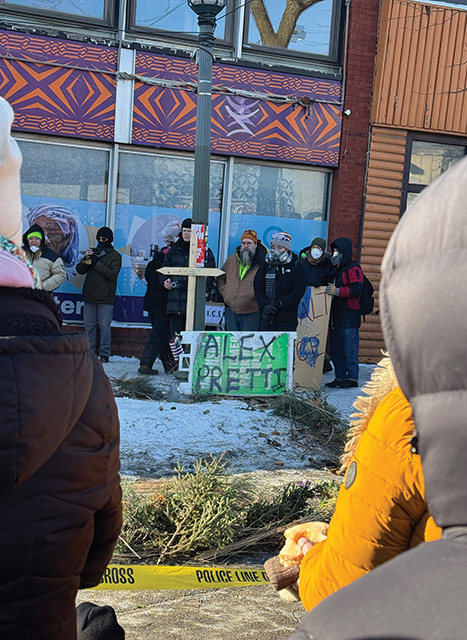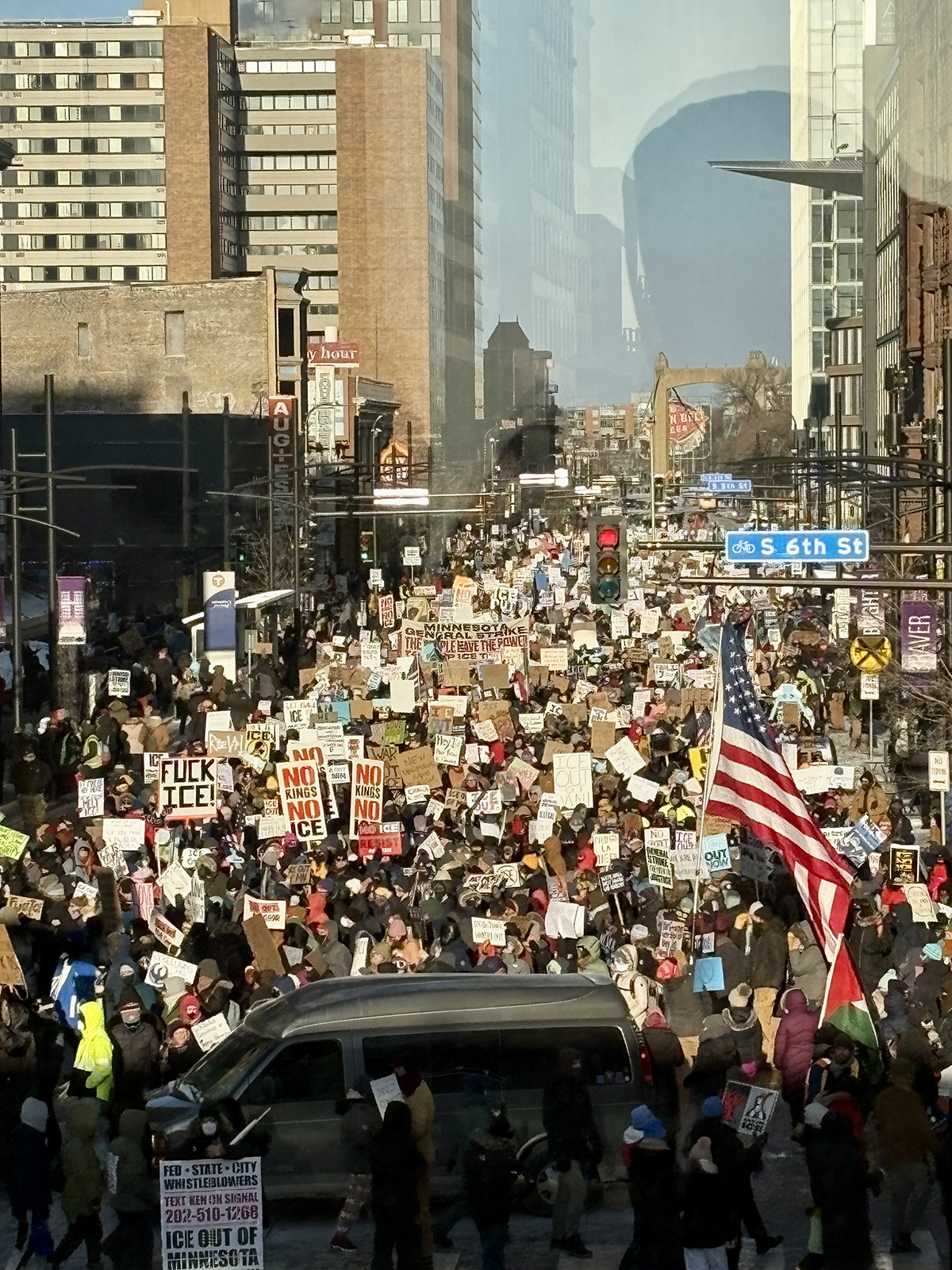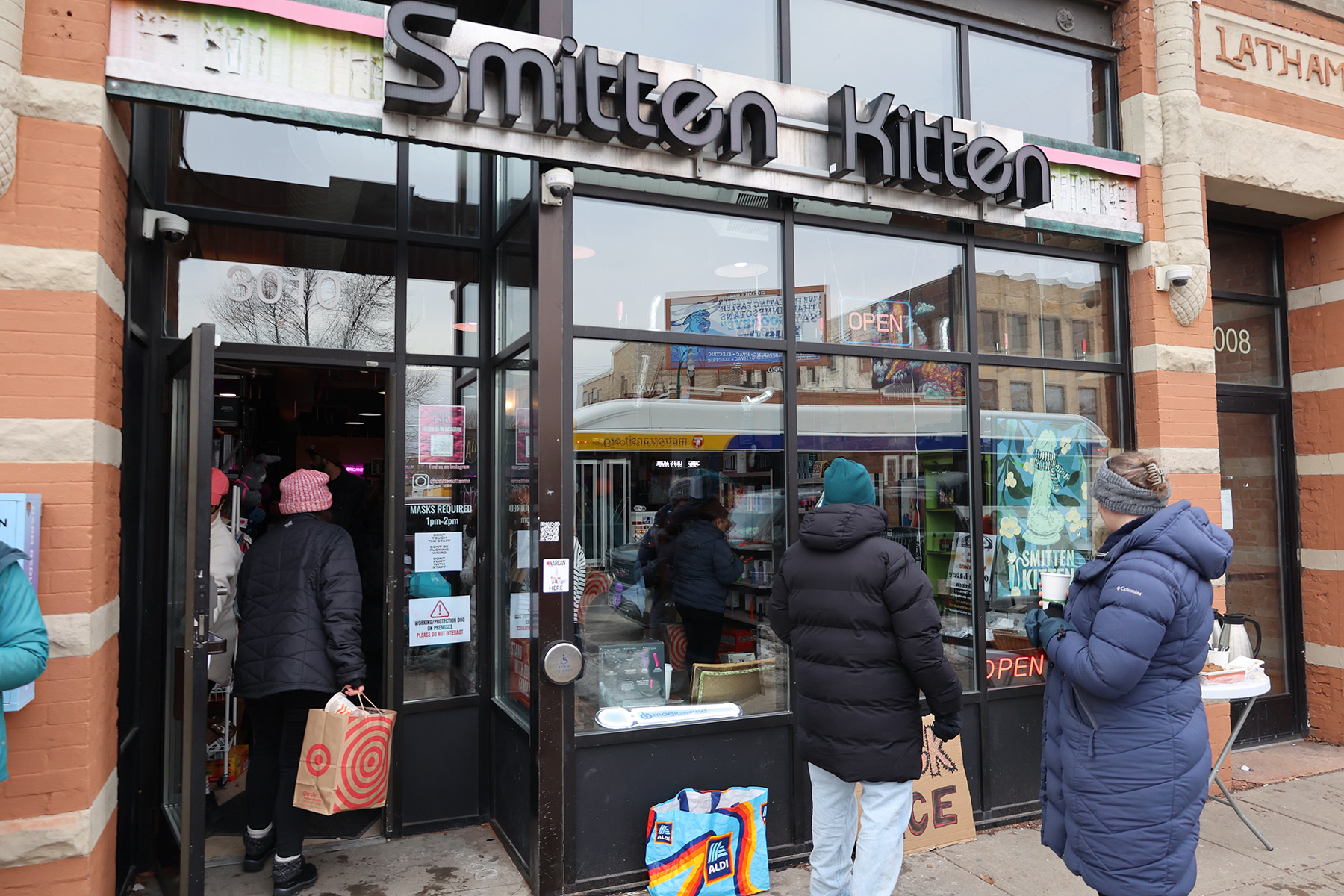Parking Shouldn’t Be Free
Since certain frequent contributors to the Hill & Lake Press have chosen to focus so narrowly on the issue of parking — truly, I cannot imagine looking around at the post-election civic landscape and concluding that the best response is to redouble my efforts against local bike lanes in last month’s opinion piece “Life in the Red Lane,” but maybe that's just me — it would be great to better ground the discussion in fact.
I recommend Susan Lenfestey & Company read "The High Cost of Free Parking" by Donald Shoup or "Paved Paradise" by Henry Grabar. Both are available through Hennepin County public libraries, and both take an evidence-based approach to parking and related policy issues, in contrast to the more emotional appeals favored thus far by the Hill & Lake Press.
For example, Grabar explains that metered parking near business corridors on the whole helps businesses by incentivizing shorter-term parking, so multiple customers can use a single parking space that may otherwise have been occupied for hours.
Hopefully facts like these can assuage some of the anxiety surrounding the changing uses of our publicly owned city streets!
Jennifer Barnes | East Isles
Crime: Income Inequality
I enjoyed reading the various perspectives on the state of the city in the most recent issue of the Hill & Lake Press.
Crime, disorder and the city council’s agenda — it does seem to me that the city I’ve called home since 1985 has changed for the worse. Just a few years ago, I don’t recall panhandlers at every intersection or the levels of property crime we’re now experiencing.
I’m not sure why income inequality wasn’t mentioned as part of the discussion, but it seems plausible that a lack of resources to address issues like housing insecurity or public safety stems, at least in part, from the widespread notion of taxes as a “burden” rather than a tool for collective action.
It may amuse tech billionaires to ride rockets, but their extravagant flexing is, in the end, funded by the rest of us. I can hardly wait to see what Elon Musk has in store over the next four years — we already know what the grifter accomplished the last time he was in office.
Economics clearly play a significant role in the challenges Minneapolis is facing. I wonder to what extent our City Council members consider this. If they do, I’d love to hear their thoughts — or those of your astute readers — on how we might begin to address these problems.
Thank you for the work you’re doing.
Bob Walser | East Isles
Crime: Same White Kia
In response to Craig Wilson's editorial, "Where We Are Now: Seeking Solutions to Crime and Disorder," I want to share a recent experience that supports his observations.
My security camera recorded a person driving a white Kia that looks exactly like the one pictured on last month’s cover. Just as Wilson described, this individual got out of their vehicle, checked the door handles of our contractor's car, opened the door, stole his wallet and drove away.
It's clearly a pattern throughout the neighborhood. Thank you for your reporting on this important issue.
Lisa Haines | Lowry Hill
Crime: It’s Time for Balance
I read your article in the Hill & Lake Press, December 2024, and your frustration with crime and queries about solutions remind me of raising children. After observing parents repeatedly telling their kids what to do — counting to ten, pleading, and still being ignored — I developed what I call “get off your butt” parenting.
When a child didn’t respond the first time, I immediately got up, guided them by the hand, and ensured the task got done. They quickly learned that ignoring me wouldn’t work. I raised my children this way with good results; they became well-mannered adults.
When I consider the litany of crime in our neighborhoods, I ask: Why does the “stick” of law enforcement feel abstract, inadequate or inappropriate? Perhaps we’ve lost sight of what policing used to accomplish before the militarization of departments after Sept. 11, 2001.
Back in the 1970s, I recall being downtown on Block E. An old man, extremely drunk, fell and hit his head on the curb. Two beat policemen arrived immediately. They knew his name, spoke kindly and said they would take him to the emergency room and then to detox.
These officers were part of the community — they knew the business owners, employees and “players” in the area. There was no criminalization of the man who needed help; he was simply cared for appropriately.
One of Franklin Roosevelt’s Four Freedoms was freedom from fear. I feel we’ve lost that in Minneapolis. Carjackings, theft and even murders are common. A tree down my block commemorates a girl who was shot there.
Meanwhile, patrol cars are a rarity — sightings, we call them. We need a steady police presence in the neighborhood, not to target or beat anyone, but to keep order, deter crime and help the vulnerable find proper resources.
It’s time for balance — policing that restores safety, trust and freedom from fear.
Peter Frenz | East Isles
Crime: Sharing Humanity
Regarding the editorial “Seeking Solutions to Crime and Disorder,” you ask, “What’s the solution? A carrot? A stick? Something new?” Likely, all of the above, to varying degrees.
Perhaps we need to step back and ask a different question: Why?
Why do theft and violence seem to be occurring at a greater rate, at least in certain areas of the city?
The City’s difficulty in hiring police officers underscores the under-enforcement of laws and ordinances and the lack of deterrence against crime.
But I would like to see much more public and political discourse about the social and economic inequities that persist in our city — inequities that sustain poverty and foster conditions where individuals may not think twice about stealing a car, burglarizing a work van, or resorting to physical violence.
We must look beyond the acts themselves and see the people behind them. I believe I was one of the neighbors referenced in your editorial who recently fell victim to an attempted armed robbery outside my home. I was unharmed. The scrappy gay kid in me, who instinctively fought back when cornered growing up, shouted loud words instead of retreating. The two young men — and they may have been just boys — fled in a car.
What stayed with me most wasn’t the fear or anger but the split second of eye contact I made with one of them. In that moment, everything stopped. I saw his humanity, and he saw mine. I could feel it. For that brief instant, neither of us felt fear.
So I ask again: Who are our neighbors? How do we care for them? How do we right these wrongs? This, I believe, is the beginning of “something new.”
John Stumme | Lowry Hill
Barbershop Buzz
I am the owner of Kenwood Barbers, located at Franklin and Hennepin in Lowry Hill, and I want to share how much my customers and I appreciate your excellent local news coverage.
Every month, my customers eagerly grab the newspapers you deliver, sparking interesting conversations in the barbershop. Many have commented that your publication provides the best local news coverage they have access to.
Thank you for supporting small businesses like mine and for strengthening our greater community.
Paul Trott | Lowry Hill
I don’t always agree, but…
I appreciate your coverage of local issues. I don’t always agree, but it’s important to start the discussion and present the facts.
Janet Nelson | Lowry Hill
Lowry Hill Poet James Lenfestey to Perform Feb. 3
The American School of Storytelling, a new venue at 1762 Hennepin Ave., will host Lowry Hill poet James Lenfestey on Monday, Feb. 3, 2025, at 7 p.m. Lenfestey will perform selections from his latest poetry collection, “Time Remaining,” published by Milkweed Editions.
Founded by Twin Cities storyteller Loren Niemi and partner Christine Mounts, the intimate, 40- seat space at the corner of Douglas Avenue and Hennepin offers performances of storytelling, music, comedy and poetry.
Lenfestey’s “Time Remaining,” subtitled “Body Odes, Praise Songs, Oddities, Amazements,” features 50 poems that span 100,000 years of human speech, 10,000 years of written language, and a decade inspired by Chilean Nobel Prize-winning poet Pablo Neruda. With humor, insight, and a deep appreciation for the rhythms of language, Lenfestey celebrates the complexities of the body and life itself.
Lenfestey, a founder of the Hill & Lake Press and a celebrated local poet, turned 80 this year. If you missed his standing-room-only book launch at Plymouth Congregational Church in November, this event offers a second chance to see him live.
Tickets are available at 651-271- 6349 or americanschoolofstorytelling.com/events.
Walter Whitman (who lives on Emerson), Lowry Hill






